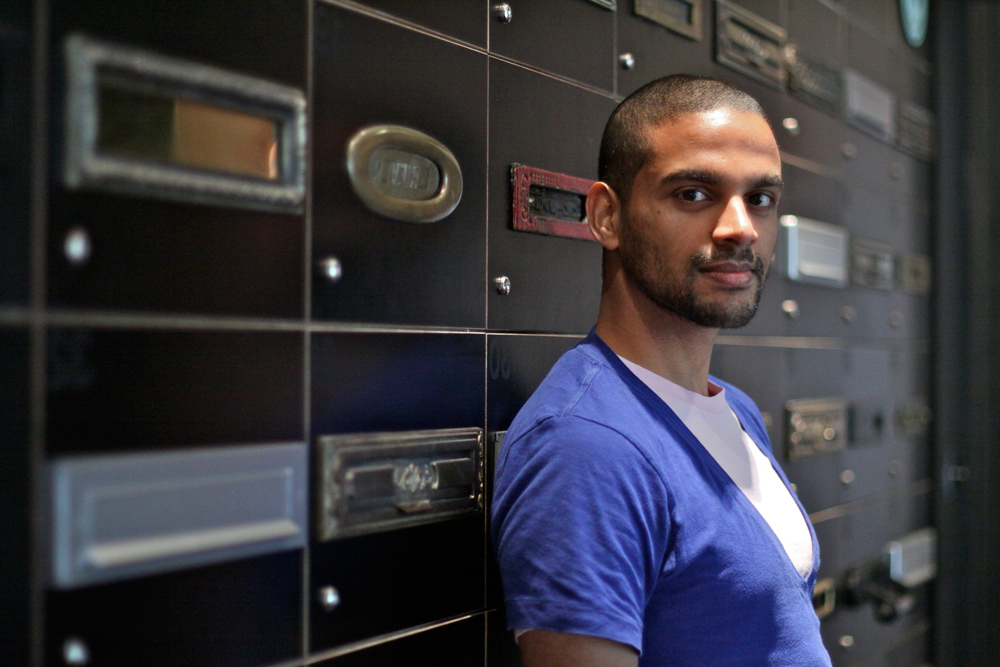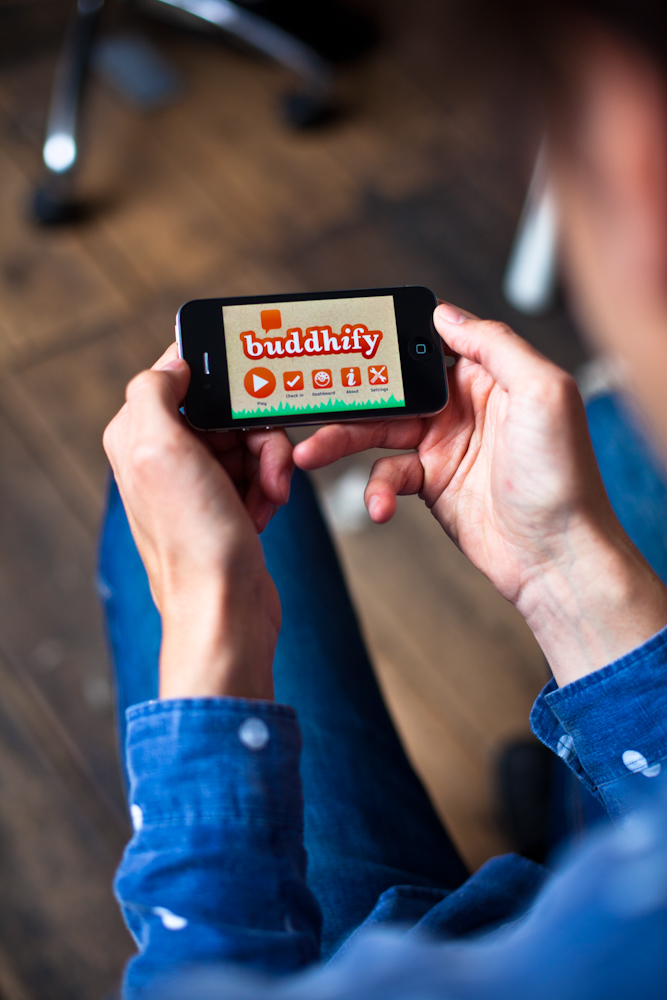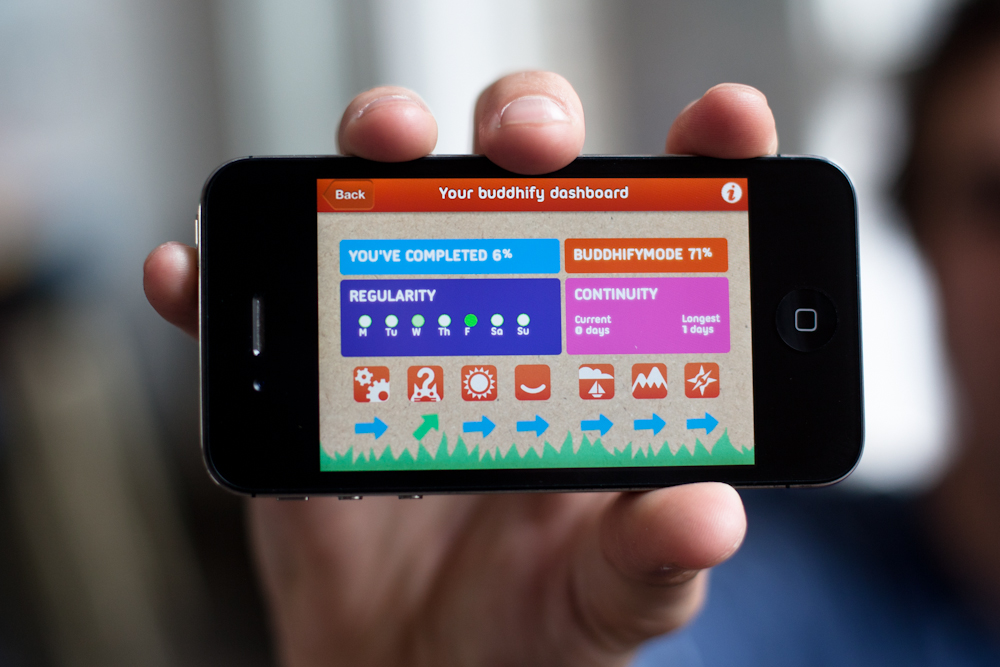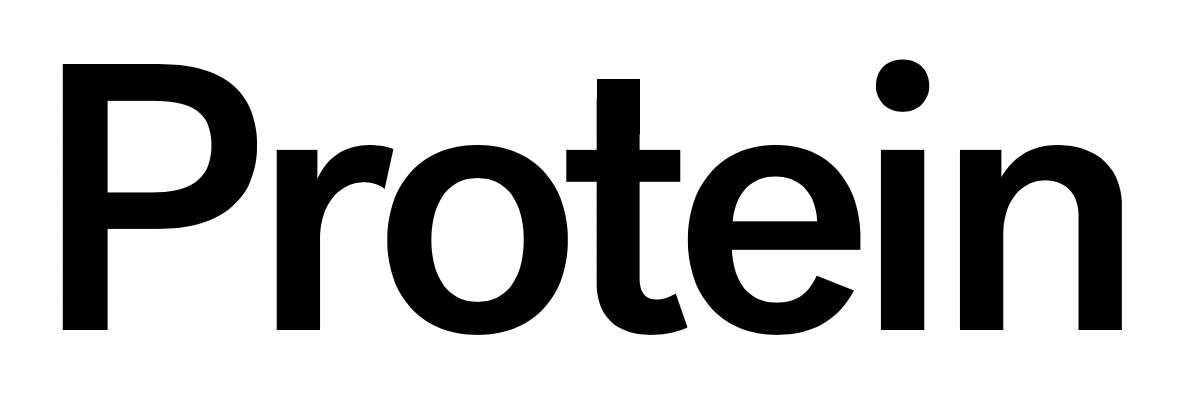Rohan Gunatillake
App developer Rohan Gunatillake talks digital downtime and urban meditation.


In the past 10 years there has been an increase in the number of neuroscientific studies examining meditation, as well as, more recently, attention from the wider media. Medical services in the UK offer mindfulness (a secular flavour of Buddhist meditation) as a treatment for stress. And the benefits extend beyond the therapeutic – Google provides similar courses for individuals due to recognition that mindfulness improves concentration and focus. In Rohan’s experience, the main factors dissuading people from trying out meditation are the perception of it being both place-specific and time-consuming; two elements seemingly incompatible with busy city lifestyles. To overcome these hurdles he repurposed traditional guided meditations to fit occasions where people were already accustomed to zoning out on headphones – such as commuting on the subway or jogging on a treadmill. And this is one of the most interesting features of buddhify: the meditations are context-appropriate to wherever you are. You can select a meditation themed to traveling, walking, or even working out at the gym. Buddhify also features mood check-ins which are a little more poetic and zen-like than similar Quantified Self applications. A dashboard charts your meditative progress with percentage values, infographical arrows and encouraging stats. It’s all quite some distance from gongs, incense and retreats to the Welsh countryside. And that’s before you consider that it’s even possible to engage in a two player meditation.‘In the same way that location-based gaming apps create a game-layer on your urban environment, I wanted buddhify to create a contemplative-layer for the city,’ Rohan explains. Various apps have successfully used gamification to improve physical health, and buddhify aims to apply these same principles to a different realm of well-being – that associated with our mind. In between running Culture Hack Scotland and organising the forthcoming Edinburgh Festivals Innovation Lab, Rohan has been a practising Buddhist (and meditator) for a number of years. He adapted his knowledge of meditation techniques to fit his urban surroundings in London, and later Glasgow. And when speaking with his friends about meditating in the city they routinely respond with an interest, but rarely does that interest translate into ongoing practice. And, as Rohan explains it,‘this is the aim of buddhify: to invert perceptions of meditation, and make it accessible to urban dwellers.’ Taking these concepts a step further, Rohan has co-founded Meditation by Design, a design company looking to extend the ethos of buddhify into new technologies - and explore digital technology designed for the mental well-being of a digital generation. Distraction isn’t intrinsic to technology,’ Rohan contends. ‘It’s just that technologies have not been designed ‘with the mind, in mind.’ Meditation by Design’s plan is to create an environment where technology design embraces input from people who understand the nature of attention, whether that’s neuroscientists, psychologists, or meditators.

When you turn your phone off, it’s still not really off – there’s a strong likelihood that you have some low-level anxiety

In our world of constant connectivity and digital ubiquity, downloading an app for meditation might seen somewhat contradictory. But the possibility that apps and smartphones can, and arguably should, be maximised for contemplative practice as much as keeping us connected is just what Rohan Gunatillake is looking to prove with his urban meditation app buddhify. Buddhify aims to take the base concepts of meditation, and combine them with culturally ingrained mobile technology to help people take time out from their busy digital lives. ‘Our generic relationships to technology are pathological,’ says Rohan. ‘They fragment our attention, distract, and reduce concentration levels. And taking downtime from our devices often isn’t enough. When you turn your phone off, it’s still not really off – there’s a strong likelihood that you have some low-level anxiety in your mind about the amount of emails piling up.’ The solution, he says, is to change our relationship to technology. With buddhify, his aim ‘is to turn our phone into a well-being device’. Through this we can then relate to personal technology in a different, more balanced way. http://www.rohangunatillake.com/



Discussion